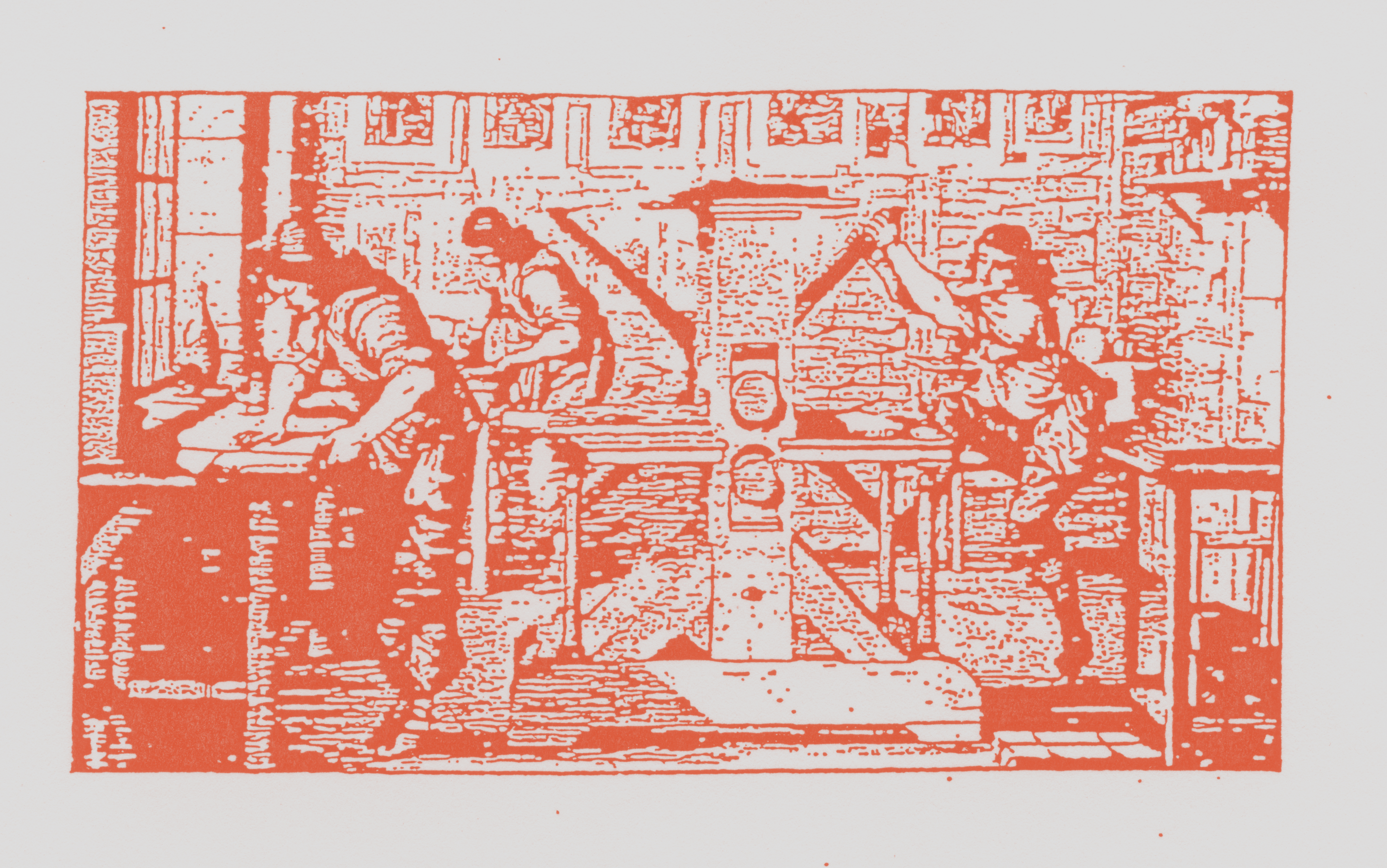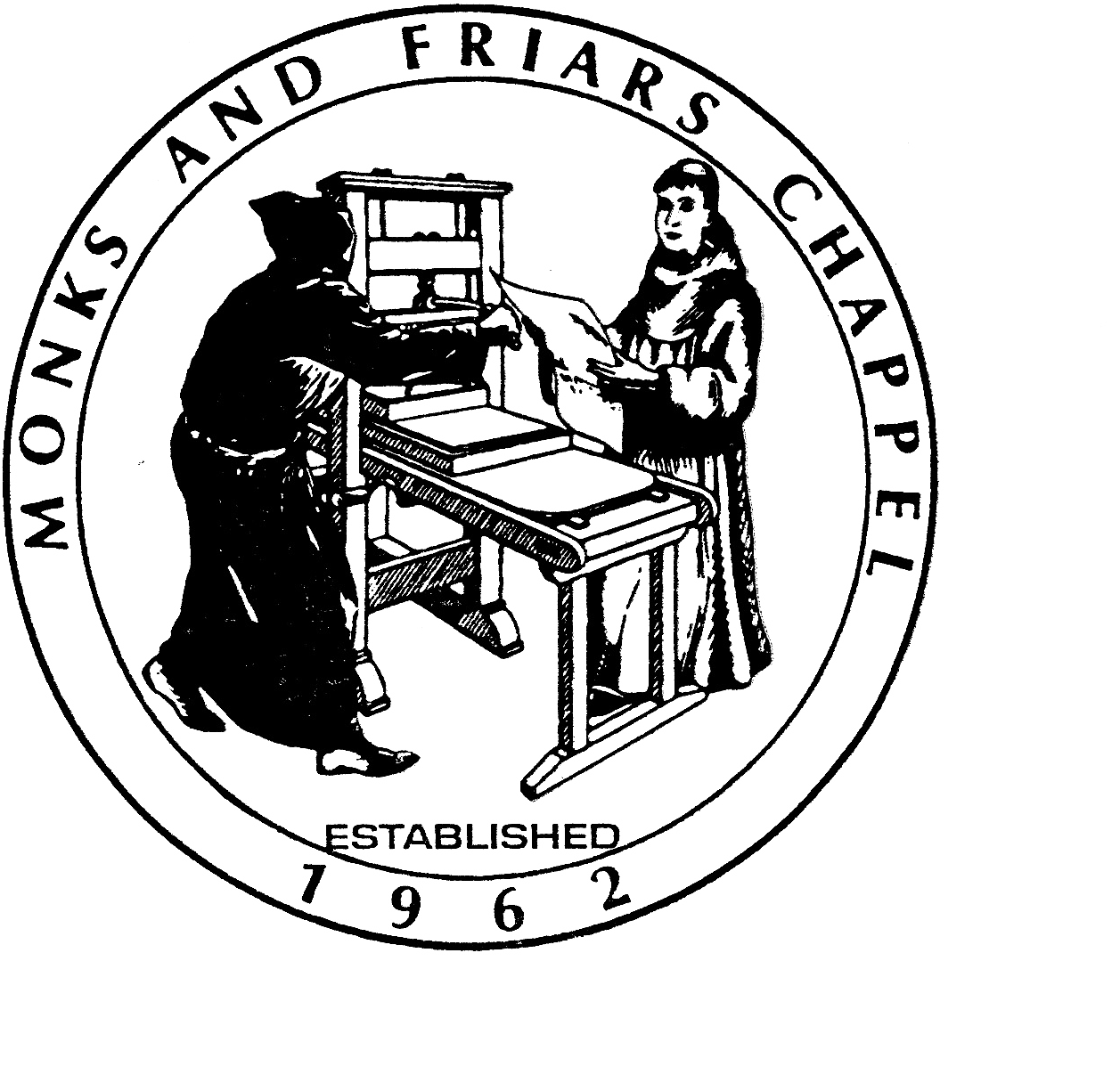25 Years of Working in the 1840’s Print Shop
-AKA- The Democratic Free Press
by Ralph M. Rinaldi
02/09/22
*This text was originally composed in 2006*
This year 2006, is the 25th year of volunteering in the 1840's Printing Shop, in The Streets of Old Detroit, at the Detroit Historical Museum.
In the fall of 1981, I was approached by Dennis Pruess who was Assistant Curator to Dr. William Phenix, The Head Curator, at the Fort Wayne Museum. Dennis Pruess had paid me a visit at my Printing Business in the Cass Corridor. He asked me if I would be interested to volunteer some time and maybe look at '”fixing up” the 1840's Printing Shop. In considering this task, I brought with me a friend, Keith Brant. Keith was a friend who had unique mechanical skills. He had spent two tours of duty in Vietnam in the United Stated Air Force. Keith was of Mohawk ancestry, and was a descendant of Joesph Brant from Northern Ontario, Canada — leader of the Mohawk Nation before, during, and after The American Revolution. While visiting the Detroit Historical Museum, we met the then Museum Director, Ms. Anita McAndless. Her wish was to have the 1840's Printing Shop, The Democratic Free Press, opened during Noel Night in December. At that time, Noel Night was a small Holiday Open House of the Detroit Public Library and the Detroit Institute of Arts. In 1981, Noel Night was on the first Saturday in December from 3:00 P.M. to 9:00 P.M. I should also mention there was a third volunteer who helped several years after Keith and I had opened the Printing Shop. His name was George Wanzug. George was a Marine veteran of World War II. George would every year raise and lower the flag at Kennedy Square and then at Hart Plaza during International Freedom Festival Week. George was also a Tradesman. He worked at Chrysler and then at Ford in the Model Design Departments. Those first years (1982-1984), George and Keith worked to repair the broken type cabinets. Also, George undertook the thankless task of sorting out all the type that was scattered throughout the Printing Shop.· George's contributions were invaluable. He had a system of organizing type that was meticulous. Regretfully, George passed away in 1987. It took Keith and I from mid-August to the end of November to put the Printing Shop in somewhat presentable organized shape.
Keith called an aunt who lived in Ontario on the Mohawk Reserve to see if she could find some “Virgin Muslin.” Keith had to replace the old fabric that had been on the 1813 Columbian Hand Letterpress since it had been donated to the Detroit Historical Museum in the late 1960's. The Columbian Hand Letterpress, which is one of two large letterpresses in the 1840's Printing Shop, is considered by the Smithsonian Museum in Washington D. C., to be a historical artifact. There are only 25 known Columbian Letterpresses in existence. Luckily, four yards of muslin were found and mailed to the Historical Museum. Keith had to hand sew and wet the muslin down with water. This is an age old process of having the muslin shrink in order to be part of the metal frame which is the Delivery System (The Frisket). Keith had the mechanical ability to totally disassemble the entire Columbian Letterpress to the bare iron frame and then once it was taken apart he cleaned and lubricated then reassembled the entire press. Finally, there were 3 leather straps that were part of the Delivery System. All 3 had to be replaced. They had remained for many years on the press and developed dry rot.
By the end of November we planned to do a “dry run”. We wanted to produce some printed material for Noel Night. I had recently discovered a box of old plates that were wrapped in newspaper. With what time we had left, we desperately ran some proofs and made a decision to immediately print from a few of these plates some images for Noel Night. The intention was to print some holiday cards to be given out to the general public. Come the day of Noel Night, we had no idea what to expect. To our amazement and to the staff of the Historical Museum, we were swamped with people who wanted to see the 1840's Printing Shop in operation! We gave out every piece of paper we had in the

shop that evening! At the close of the evening, Anita McAndless congratulated us on a job well done! Apparently, we were a hit of the museum that night. Ever since that first year, we have given out bookmarks and holiday greeting cards to the general public as a goodwill gesture of the Detroit Historical Museum.
About ten years later (1991), Keith and I were asked by then Director, Tom Deets, to research the Fort Wayne Warehouse and locate any other equipment that could be added to the 1840's Printing Shop. We discovered a 1890 Washington Press in storage. We suggested that it could be operational when it was installed into the Museum. The Washington Press was eventually moved to thee Historical Museum by the Maintenance Department on a flatbed truck. Once it was at the Historical Museum it. was rolled out and transported downstairs on plywood sheets into the 1840's Printing Shop. Keith and I discovered that the press had no Frisket. It had no hand crank, and it had no leather straps. The leather straps work together with the hand crank and the Frisket to move paper from the back of the press to the front with great amount of ease better than the Columbian Press. But, we had to completely disassemble. the Washington Press, and then rebuild it from drawings Keith located at the Greenfield Village Historical Library. Also, we were able to get a hand crank designed and built by Al Ochsner who was the Village Supervisor at Greenfield Village. Al was able to give us some leather straps that were cut to size from the Village Livery Stable. By the fall of that year the Washington Press was reassembled and operational.
In the last ten years I have located in the Historical Museum a collection of some Thomas Nast Christmas plates. Nast was a German Immigrant who came to America in the mid nineteenth century at the age of fifteen. He apprenticed at many New York City Newspapers as a political illustrator and a cartoonist. He is well known for his drawings of “Boss Tweed,” the infamous boss of New York City's Tammany Hall. However, Nast is best remembered today for Christmas drawings of “Father Christmas” or as we call him, Santa Claus. These ideas about Christmas Nast brought with him from Germany. I've been able for the last 10 years to reproduce 10 different Thomas Nast Christmas illustrations in the Printing Shop. This has been part of the Holiday tradition every Noel Night.
In closing, with volunteering in the 1840’s Printing Shop/The Democratic Free Press, I need to thank those of the Historical Museum who have been supportive throughout these many years. It has been a true labor of love and artistic expression in action. There are many people who come by the shop and don't know or understand the history of Letterpress Printing. Because of this a few of us craftsmen/artists try to keep the skills alive. Our intent is to teach, to demonstrate, to print with the engravings, the wood and lead type and still use the old “obsolete” equipment that was the foundation of the first Industrial Revolution in North America.
Thank You
Ralph M. Rinaldi

